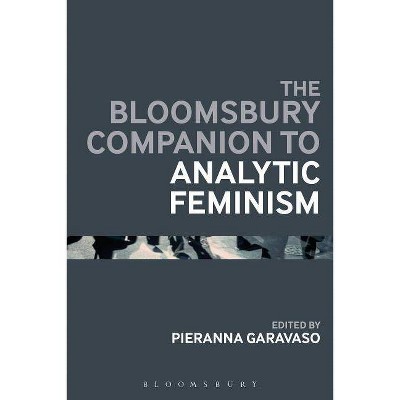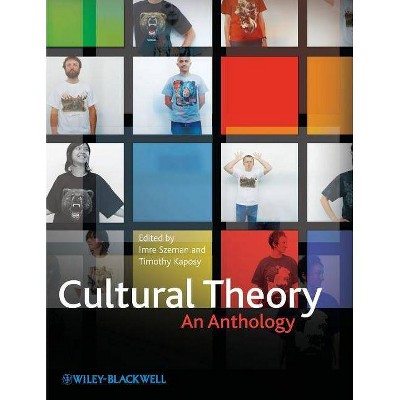The Bloomsbury Companion to Marx - (Bloomsbury Companions) by Andrew Pendakis & Imre Szeman & Jeff Diamanti (Paperback)

Similar Products
Products of same category from the store
AllProduct info
<p/><br></br><p><b> Book Synopsis </b></p></br></br>There are very few figures in history that have exerted as much and as varied an influence as Karl Marx. His work represents an unrivalled intervention into fields as various as philosophy, journalism, economics, history, politics and cultural criticism. His name is invoked across the political spectrum in connection to revolution and insurrection, social justice and economic transformation. <br/><br/><i>The Bloomsbury Companion to Marx</i> is the definitive reference guide to Marx's life and work. Written by an international team of leading Marx scholars, the book offers comprehensive coverage of Marx's: life and contexts; sources, influences and encounters; key writings; major themes and topics; and reception and influence. <br/> <br/>The defining feature of this <i>Companion</i> is its attention to the new directions in Marxism that animate the theoretical, scientific, and political sides of Marx's thought. Gender and the growing importance of Marxist-feminism is treated as equally important to clarifying Marx today as traditional and diverse categories of critique such as class, capital, and mode of production. Similarly, this <i>Companion</i> showcases the methodological and political importance of Marxism to environmentalist politics. Finally, the volume examines in detail non-European Marxisms, demonstrating the centrality of Marxist thought to political movements both within and beyond the global north.<br/><br/>This book is the ideal research resource for anyone working on Marx and his ideas today, and as an entry point, if you are approaching Marx's thought for the first time.<p/><br></br><p><b> Review Quotes </b></p></br></br><br>A great guide to the worldwide and transdisciplinary travels of Marxian influence, as well as to the vast theoretical landscape of his oeuvre.<br><br>Many scholarly handbooks are not something to sit down with and settle into for a good read. <i>The Bloomsbury Companion to Marx</i> is one exception. With a brilliant Introduction and sections on Marx's key writings, Marxism's reception, and topical themes ranging from 'abstraction' to 'work, ' the collection offers deeply informative yet succinct and edgy essays. This is an invaluable guide for scholars and students.<br><br>Today more than ever, Marx needs to be widely accessible. This book, a unique think-tool, ends all excuses for not putting the most sophisticated social theory in the Western tradition to productive use.<br><p/><br></br><p><b> About the Author </b></p></br></br><p><b>Jeff Diamanti</b> is Lecturer in Literary and Cultural Analysis at the University of Amsterdam. He is the co-editor of <i>Contemporary Marxism: A Reader </i>(Bloomsbury, 2014) and <i>Materialism and The Critique of Energy </i>(2018). <p/> <b>Andrew Pendakis</b> is Associate Professor of Theory and Rhetoric at Brock University, Canada. He is co-editor of <i>Contemporary Marxism: A Reader </i>(Bloomsbury, 2014) and is an editor of the third edition of the <i>Johns Hopkins Guide to Literary Criticism and Theory</i> (forthcoming). His work has been published in journals such as <i>Politics and Culture</i>, <i> Public, </i>and<i> South Atlantic Quarterly.</i> <p/><b>Imre Szeman</b> is University Research Chair of Communication Arts at the University of Waterloo, Canada. He is author of <i>Zones of Instability: Literature, Postcolonialism and the Nation </i>(2004) and <i>On Petrocultures </i>(2018), co-author of <i>Popular Culture: A User's Guide </i>(4th ed. 2017) and <i>After Globalization </i>(2011), and co-editor of <i>Energy Humanities: An Anthology </i>(2018) and <i>Fueling Culture </i>(2018).</p>
Price History
Price Archive shows prices from various stores, lets you see history and find the cheapest. There is no actual sale on the website. For all support, inquiry and suggestion messages communication@pricearchive.us




















